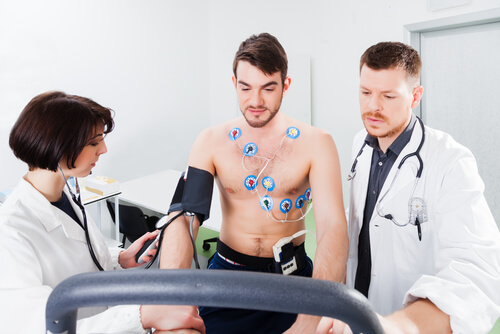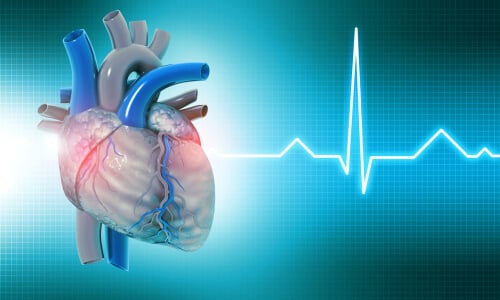
Stress Test. How do we do it?
Two main objectives for the exercise test:
- To help and evaluate if the heart gets enough blood supply during activity.
- To assess your status before you go to do vigorous sport or gym.
Preparation needed for the test:
- No smoking or eating or caffeine beverages for 3 hours at least
- Monitor blood pressure before and during the test and afterward.
- Monitor ECG during the test and afterward in recovery for arrhythmia or ST changes.
How you do it?
We fix 10 electrodes on patient's chest wall attached to the ECG machine via cables to monitor the electricity of the heart, then the patient runs on the treadmill in many stages where the speed and the degree of the treadmill is increased in every stage (Bruce protocol)
- Stage 1: Speed 2.5 kph with 10-degree elevation,
- Stage 2: Speed 4 kph with 12-degree elevation,
- Stage 3: Speed 5.5 kph with 14-degree elevation,
- Stage 4: Speed 6.8 kph with 16-degree elevation.
The doctor monitors the blood pressure and the ECG changes during the test and in the recovery period afterwards.
When do you have to stop the test?
- If you arrived at the target heart rate (220 - your age).
- Chest pain.
- Shortness of breath.
- Dizziness, severe high blood pressure more than 210 mmHg for systolic.
- Any one of the above lists with ST changes (depression or elevation more than 1.5 mm).
Any there any risks from the exercise test?
There are Some risks:
- Chest pain and angina.
- Collapse.
- Fainting.
- Heart attack.
- Irregularity of heartbeats.
But you are under close supervision from your doctor so please don’t worry.
Conclusion
- Positive: Chest pain or shortness of breath with ST depression more than 1.5 mm means that there is more than 70% stenosis in the coronary artery and the patient needs further investigation as coronary angiography or CT angiography.
- Negative: No chest pain or ST changes means that the coronary artery has stenosis less than 70% but that does not mean you are safe because the plaque rupture is more in less severe stenosis (less than 70%) and this rupture ends by heart attack.
- Equivocal: There is some ST dep with chest discomfort which can be relieved early in recovery.
The sensitivity of the test is 80-85%, there is 15% false negative and about 10% false positive. Please don’t be panic if you are under close observation from your doctor.
Topic: cardiology




.jpg)



Leave a comment